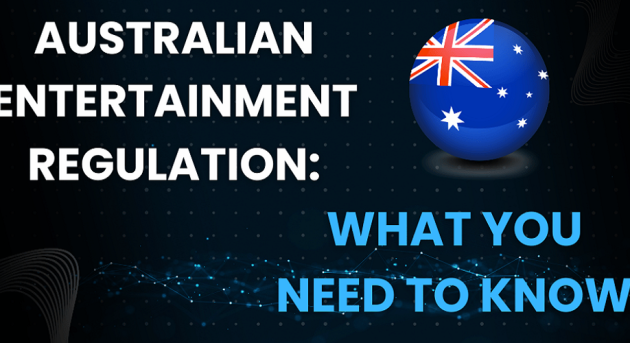Australian Entertainment Regulation: What You Need to Know
In Australia, the gambling industry is one of the fastest-growing and most significant sectors of the economy. This includes various types of gambling, such as slots, lotteries, casinos, sports betting and online gambling. It not only represents entertainment but is also a significant source of revenue for the state budget, providing funding for social programs and infrastructure projects.
It is important to note that the gambling industry in Australia has its own characteristics. Among them, we can highlight the widespread use of slot machines, high levels of gambling participation among the population, and high competition between gaming companies. This type of entertainment also has a significant impact on the community.
The Importance of Regulating the Gambling Industry
The regulation of gambling in Australia is critical to ensuring the safety and security of players, preventing criminal activity and combating gambling addiction. Without strict control and regulation, gambling can lead to serious negative consequences. Therefore, the development and enforcement of regulatory rules play a key role in the proper development of the gambling industry.
Evolution of Legislation
The history of gambling regulation in Australia dates back to its colonization. In the early 19th century, when Australia was still part of the British Empire, a lot of forms of gambling were prohibited under British law. However, over time, gambling legislation began to evolve.
In the first half of the 20th century, laws were passed authorizing lotteries and even some forms of sports betting. However, the large-scale spreading of slot machines of the 1950s and 60s caused public concern and led to the introduction of stricter regulation in this area.
In the 1970s, intensive work began to create a comprehensive system of gambling regulation. Laws were passed to license casinos, regulate gambling and control gaming providers. In 2001, the Interactive Gambling Act was passed, which regulates online gambling and introduces a licensing system for online providers.
Other important changes include the introduction of strict restrictions on gambling advertising, the development of programs to protect players and combat gambling addiction, and increased penalties for violations of the law. Regulatory reforms continue today. Government and public organizations are constantly working to improve the control system.
Current Legislation in Australia
Australia has a complex system of laws and regulations contributing to the responsible gambling industry. The main laws in this area include:
- Gambling Act 2001, which establishes general principles of gambling regulation in the country and defines the main powers, and responsibilities of state bodies.
- The Casino and Gambling Law of 1991 regulates casinos and other gaming establishments, including the issuance of licenses and control of their activities.
- The National Lottery and Sweepstakes Act of 1996 regulates lotteries and betting on horse racing and sports events.
Under the jurisdiction of these laws are slots, poker machines, casinos, lotteries, sports betting and horse racing.
Government bodies such as the Australian Gambling and Racing Commission are responsible for overseeing gambling service providers and operators. These organizations issue licences, conduct inspections and audits, and carry out compliance checks.
In general, gambling legislation in Australia aims to ensure transparency, integrity and accountability in the gambling industry. Due to the constant development of technology and changes in public preferences, laws and regulations in this area are regularly reviewed and updated.
Important to Know
You can only gamble in Australia if you are of a certain age. This is usually 18 or 21, depending on the specific rules and types of games. Gaming clubs are required to strictly enforce these age limits and verify the identity of players to prevent minors from accessing gambling.
Australia places great importance on responsible gambling and protecting players from potential gambling addiction. Gambling operators are required to provide information about the possible risks of playing, as well as give access to programs to self-exclude or restrict access to gambling sites. Australia may also take advantage of an initiative such as GamStop. This is a tool that restricts access to gambling to those with gambling problems. Users of UK online casinos can use it. Of course, not all UK gambling sites are included in the GamStop list, but their number is significant. It means that these casinos that do not use GamStop allow individuals to seek alternatives to traditional UK-based operators. These non-GamStop platforms offer a variety of options and features aimed to meet the needs of players looking for different gaming experiences outside the reach of GamStop restrictions.
You should also consider the tax liabilities associated with winnings from casinos or sports betting. In most cases, winnings in Australia are not taxable, but there are some exceptions, especially in the case of large winnings.
The Main Aspects of Gambling Regulation
The regulation of the gambling sphere in Australia plays a key role in ensuring the safety and protection of the interests of players. A historically established system of laws and norms allows you to control various types of gambling and ensure honesty. However, it must be recognized that the calls from the news of the modern world require constant updating and improving gambling regulation.
We ask all players to play responsibly. Compliance with age-related restrictions, participation in player protection programs and compliance with laws are major steps that will help prevent possible negative consequences from the game.
Of course, modern technologies and changes in public preferences require flexible responses from the legislative system. Thanks to competent regulations, you can create a balanced and safe game environment where everyone has the opportunity to enjoy gambling.




